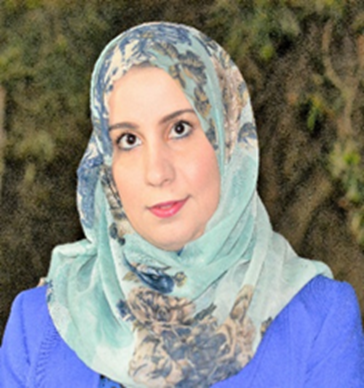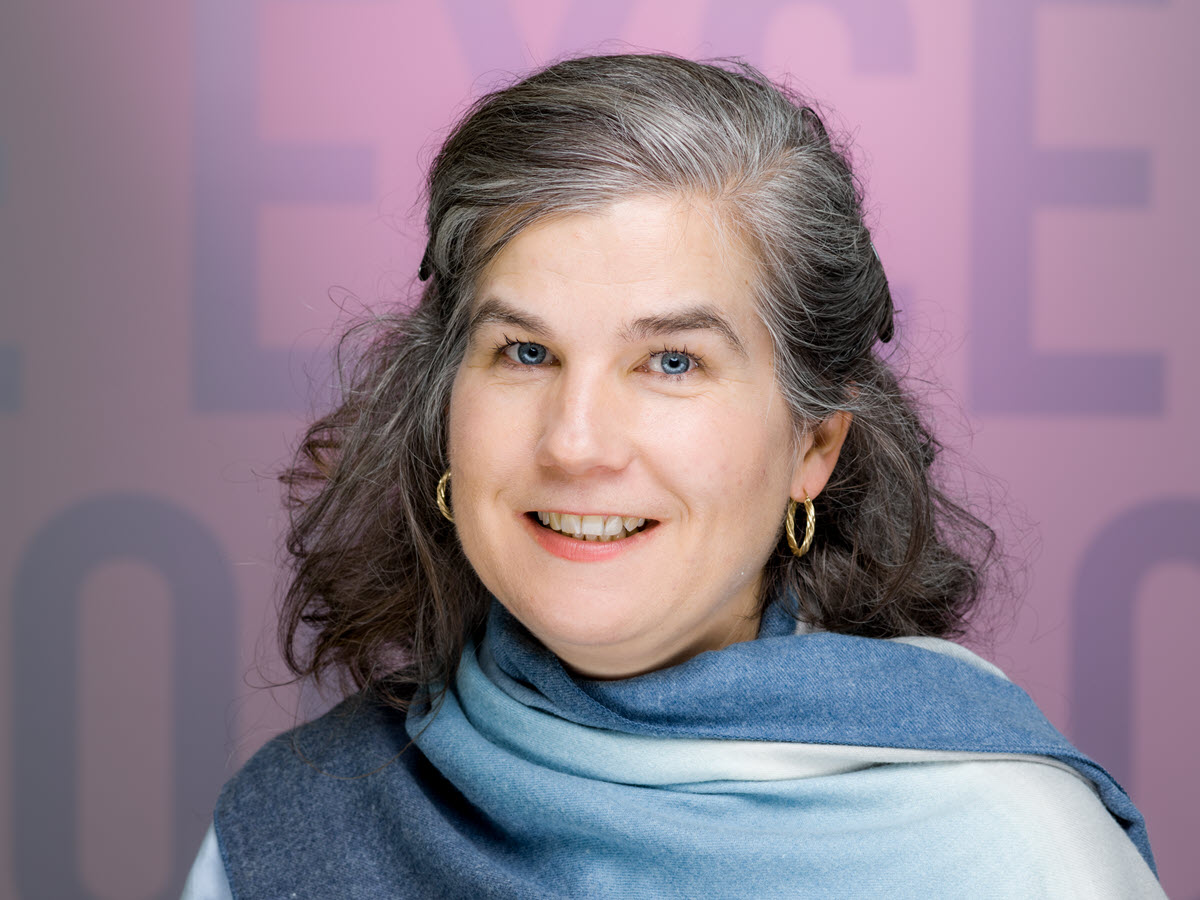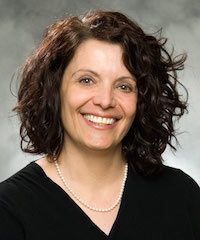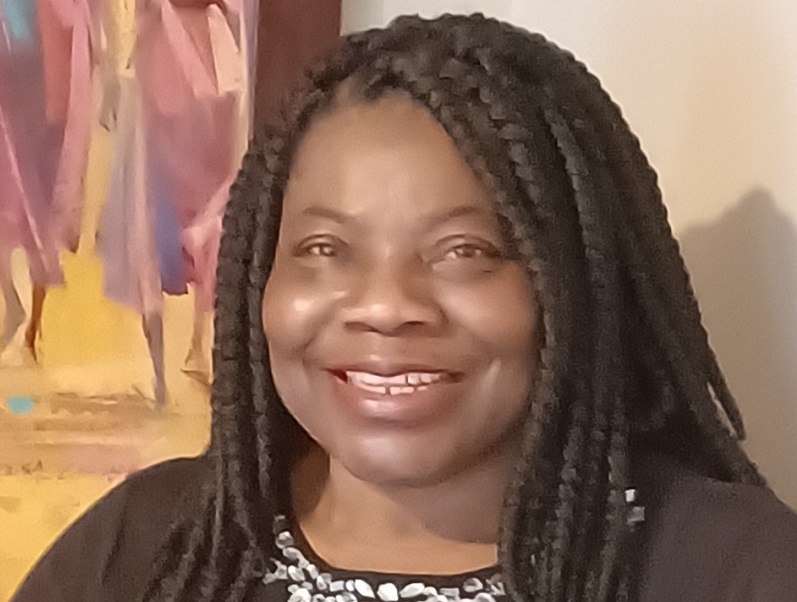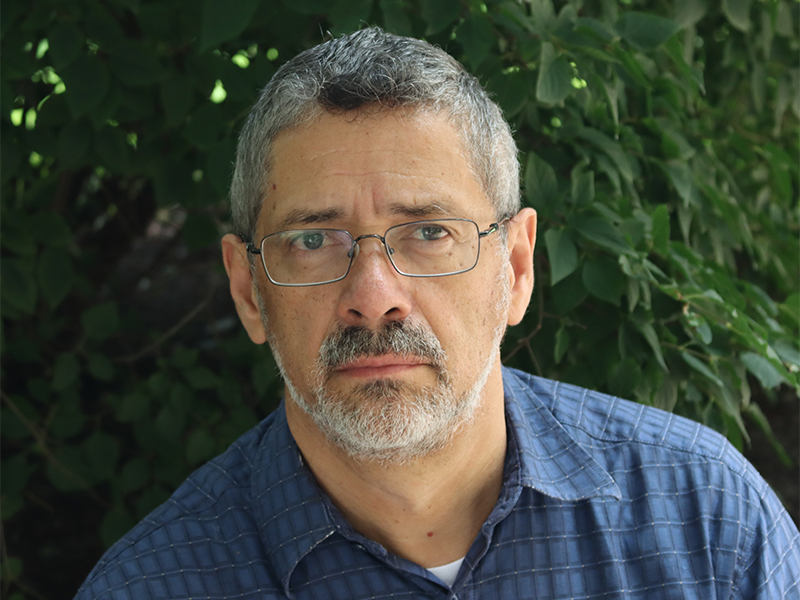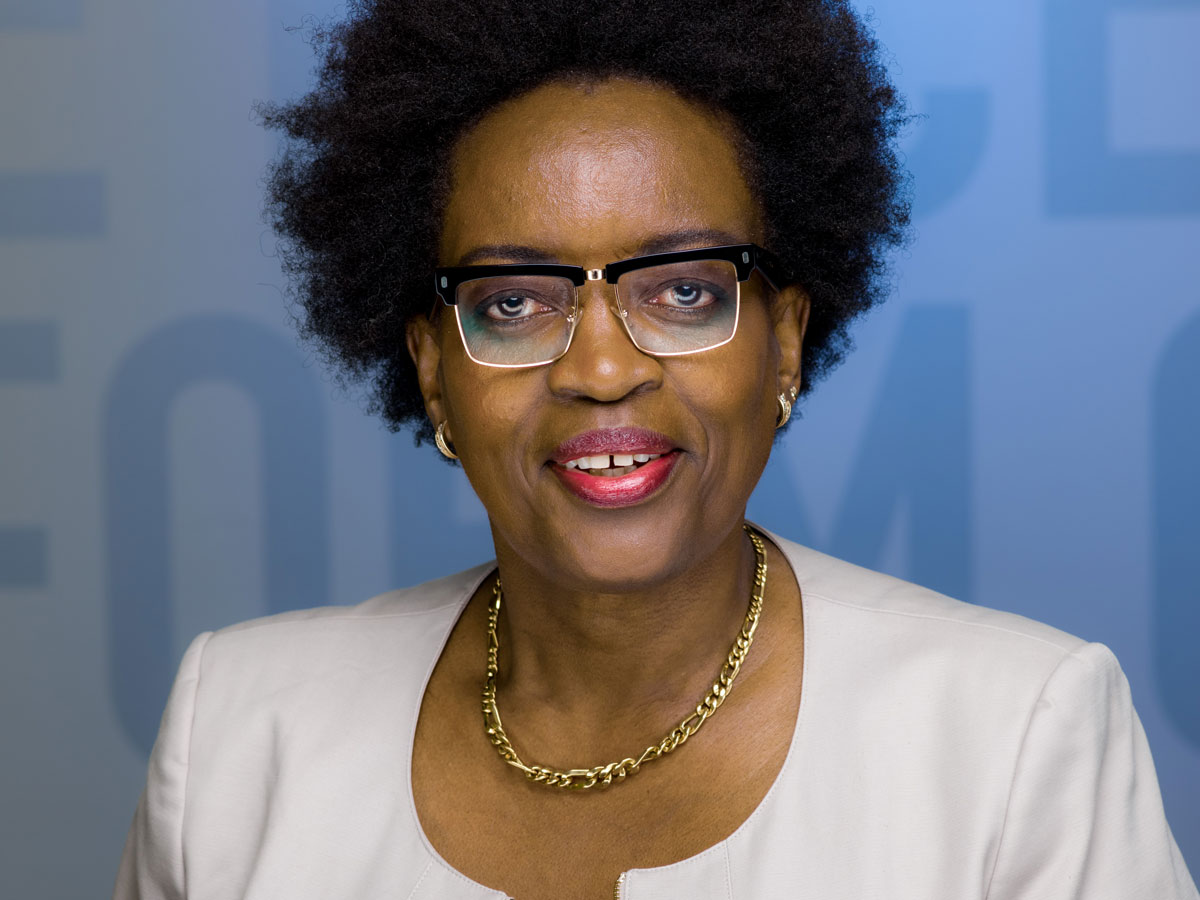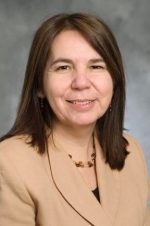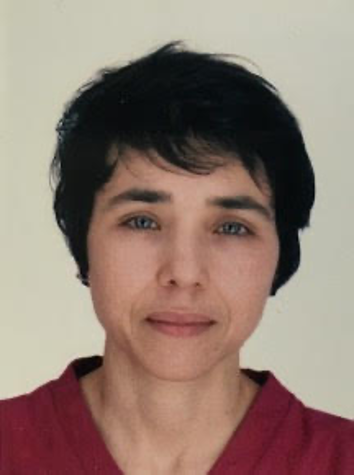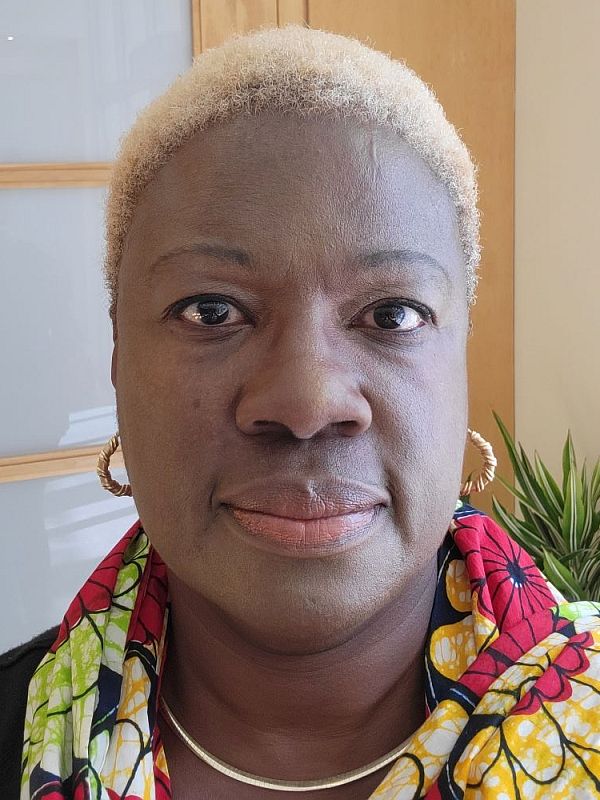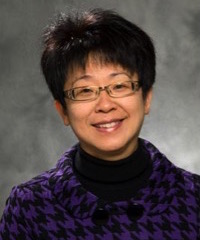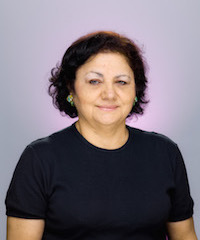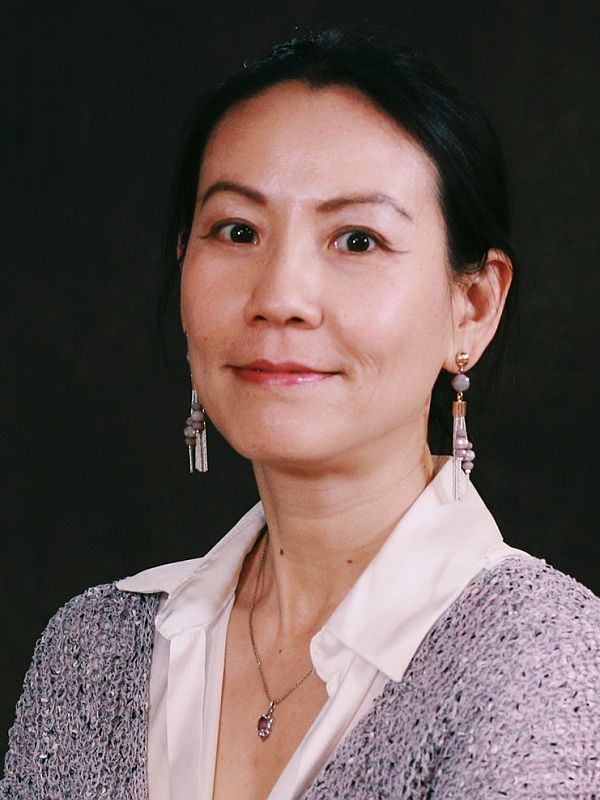International Scholars Collaborative
The FCS International Scholars Collaborative is composed of faculty members from across FCS’ nine schools who are engaged in international research collaborations to expand knowledge and innovation across borders.
The group serves as a hub for support, collaboration, building connections, and advising on strategic direction for the faculty’s internationalization work.
- Highlighted Collaborations: Medical imaging technology in global crisis; AI in maternal health
- Locations: Brazil, Qatar
Areej Al-Hamad’s work has taken her into several international research projects across Qatar and Brazil. In Qatar, her collaboration spans four different institutions/organizations. This includes a mixed methods research project with Qatar University and the Primary Health Care Corporation, where they are exploring the perceptions of Qatari medical students on pursuing family medicine as a career path. Another project is a phenomenology study focused on the lived experiences of radiologists at Sidra Medicine in Qatar with the home-based picture archiving and communication system during a global crisis. Additionally, Al-Hamad is working with the University of Doha for Science and Technology on a project to explore nursing faculty experiences with the adoption of a concept-based curriculum. In Brazil, her engagement includes working on a knowledge translation project aimed at developing online culturally sensitive maternal and child courses/curriculum. She is also co-supervising a postdoctoral student from Brazil, focusing on AI in maternal health practices.
- Highlighted Collaborations: International and Canadian Child Rights Partnership
- Locations: Worldwide
Tara Collins is an active member of the International and Canadian Child Rights Partnership (ICCRP), a Social Sciences and Humanities Research Council-funded research partnership hosted at Toronto Metropolitan University. After an international conference at the university in 2015, the ICCRP was created to begin a research project focused on children’s rights to participation and protection. The ICCRP has since expanded to consider questions of intergenerational relationships in children’s rights implementation in research, policies, and practices. The ICCRP works closely with several local, national, and international universities, non-governmental organizations, human rights institutions, and governments in countries such as Australia, Belgium, Bolivia, Brazil, Canada, Cyprus, England, India, Italy, Netherlands, New Zealand, Scotland, South Africa, Sweden, Switzerland, Thailand, Uganda, and the US.
- Highlighted Collaborations: Role of mentoring and career development; Suicide research
- Locations: Ghana, Kenya
Beverly-Jean Daniel, a professor in the School of Child and Youth Care, is collaborating with scholars at the University of Embu, Kenya, and the University of Ghana. Her international research has included examining the role of mentoring and career development among post-secondary students. She has also looked at suicide ideation and completed suicides among youth who have experienced home placements.
- Highlighted Collaborations: Early childhood education in emergency situations
- Locations: Bolivia, Brazil, Chad, Egypt, Mexico, USA
Aurelia Di Santo’s international experience includes working on early childhood development projects in Bolivia, Brazil and Egypt. In collaboration with iACT, an international humanitarian non-governmental organization based in the US, she is developing an assessment framework for early childhood education (ECE) programs. The aim is to scale up ECE programs for children living in refugee camps in eastern Chad as well as to initiate an early learning program for asylum-seeking children and their families living at the US/Mexico border.
- Highlighted Collaborations: Maternal health; Pedagogical contributions through the arts
- Location: Nigeria
Funke Oba’s international scholarship includes collaborations with Nigerian scholars on Afrocentric research and pedagogical contributions using art, yarning, proverbs, music, and dance in areas including child welfare, food security, older adults, violence prevention and mental health. She is one of the pioneers of using Afrocentric Sharing Circles to promote youth engagement, intergenerational healing and social justice. Oba partners with interdisciplinary scholars in the Faculty of Community Services to explore maternal health in selected African countries, while honouring tested traditions. The goal is to develop community-friendly empowering practices that promote maternal agency and lay foundations for wholesome families.
As a Carnegie Fellow in 2019, Oba undertook a funded three-month fellowship at the University of Lagos, where she focused on practicum as the signature pedagogy of social work. She has also collaborated with the Association of Social Work Educators of Nigeria where one project involves developing an initiative to pair Black diaspora youth with African grandmothers to document stories in dance, drama and other art forms.
- Highlighted Collaborations: Rights for Children and Youth Partnership (external link)
- Locations: Caribbean, Central America
Henry Parada is a cross-appointed professor at TMU’s School of Social Work and the Immigration and Settlement Studies graduate program. His experience includes working in the Caribbean, Central America and their respective diaspora populations in Canada on issues surrounding child protection, human rights, youth participation, and the settlement and resettlement of immigrant and refugee populations. He has been a regular lecturer at universities in the Dominican Republic, El Salvador, Nicaragua, and Argentina.
His research interests include immigration, children and youth’s rights, international cooperation, institutional practices, diasporas and refugees. Parada is the principal investigator of a seven-year project, the Rights for Children and Youth Partnership, which works with six Central American and Caribbean countries and their diasporas in Canada in areas of youth immigration, child welfare and violence against youth.
- Highlighted Collaborations: Comparative studies of residential care
- Locations: Jamaica, Trinidad and Tobago
Petra Roberts’ expertise lies in residential care from an international comparative perspective, focusing on alumni or former residents of out-of-home care, including foster care and group homes. Specifically, her research delves into the gendered experiences of individuals transitioning from living in care, with a particular emphasis on the experiences of girls and young women. Additionally, she explores the role of women in providing out-of-home community care, along with families caring for children with disabilities in the global South. Her international collaborations are in the Caribbean, with a specific focus on Jamaica and Trinidad and Tobago. She collaborates with various international research partners, including the University of the West Indies, the Children’s Authority of Trinidad and Tobago, St. Mary’s Children’s Home, St. Dominic’s Children’s Home, Miss Kistow’s Children’s Home, and the Couva Children’s Home and Crisis Nursery.
- Highlighted Collaborations: Joint research and teaching activities in food security
- Location: Brazil
Cecilia Rocha is a professor and former director in the School of Nutrition, and an associate researcher and former director of the Centre for Studies in Food Security. She created and coordinates the Betinho Project, named for the founder of the movement for food and nutrition security in Brazil. Through her work on this project, she has maintained a long-standing collaboration with a wide range of Brazilian scholars, from universities, government, and non-governmental organizations, in research as well as knowledge dissemination.
A memorandum of understanding between Toronto Metropolitan University and the Federal University of Rio Grande do Norte (UFRN) since 2018 has provided a framework for collaboration to develop joint research and teaching activities in the area of food security. This collaboration has led to the publication of one book in Portuguese, one book chapter, a major report, and five peer-reviewed articles. Four UFRN researchers have made presentations to seminars organized at TMU and Rocha taught an online course to UFRN students in 2021 (Economic Basis for Public Policies in Food and Nutrition Security). So far, six researchers (two students and four faculty members) from UFRN have been visiting scholars at TMU.
- Highlighted Collaborations: Child- and youth-focused evaluation and training
- Locations: Ghana, India, Laos, Namibia, Senegal, UK, USA
Mónica Ruiz-Casares is engaged in various international research collaborations. These include training students at the National University of Namibia for data collection and processing on research focused on child wellbeing, orphanhood and children’s rights; leading an international school-based survey of children’s subjective wellbeing (Namibia); preparing international biennial conferences through the International Society for Child Indicators (Bhubaneswar, India); and collaborating in research and training of faculty and students on social research methods, children’s rights and child protection at the National University of Laos.
Ruiz-Casares is also involved in youth-focused evaluation internationally, primarily in the United States and in Senegal. She has ongoing collaborations with colleagues participating in international research and training projects at the University of Bristol in the UK, and at the University for Development Studies in Ghana. She regularly collaborates with global researchers and practitioners/organizations through the International and Canadian Child Rights Partnership, where she serves in a leadership role and contributes to several committees.
- Highlighted Collaborations: CAM Global projects
- Locations: Brazil, Burundi, Jamaica, South Sudan, Tanzania, Zambia
Karline Wilson-Mitchell has participated in many international collaborations as a scholar, consultant and volunteer. She has served as external supervisor for a doctoral midwifery student in Jamaica and engaged in research partnerships with the University of West Indies School of Nursing (Jamaica) and Universidade Federal Fluminense (Brazil), where she trained student interns to explore humanized birth and obstetrical violence. She also has worked with the Canadian Association of Midwives’ global arm, CAM Global, where she developed the Tanzanian Respectful Maternity Care workshops and university curriculum, as well as workshops for nurses and midwives through the Strengthening Services in South Sudan Phase 2 project.
Wilson-Mitchell volunteers with non-governmental organizations (NGOs) in Jamaica, Burundi and Tanzania, where she delivers free healthcare in pop-up clinics, and facilitates continuing education workshops along with the acquisition of personal protective and medical equipment. NGOs have included CEPBU in Burundi, Footprints foundation in Jamaica and elsewhere, local faith-based foundations, Tanzanian Association of Midwives, Juba College of Nursing and Midwifery, JHPIEGO Tanzania and UNFPA in UN Refugee Camp South Sudan.
- Highlighted Collaborations: Linking Hearts project (external link)
- Location: China
Josephine Wong, a professor in the Daphne Cockwell School of Nursing, is leading an international project in the areas of stigma reduction and mental health promotion. The Linking Hearts project is a transnational implementation research project between Canada and China. It was developed in response to the observed mental health needs of university students in Jinan, Shandong, China. The aims of Linking Hearts are to document the implementation processes and evaluate the effectiveness of the evidence-based intervention, ACE-LYNX, which refers to Acceptance and Commitment to Empowerment – Linking Youth and ‘Xin’ (hearts). Project partners in China include six universities and one provincial mental health centre.
- Highlighted Collaborations: Hosting and mentoring international researchers
- Locations: African francophone countries, Brazil, Belgium, France, Italy, Portugal, Spain
Margareth Zanchetta is a Brazilian diaspora nursing faculty whose scholarly work addresses health literacy, global nursing and capacity building, and oncology. She is a member of the leadership team of the Pegasus Institute’s Francophone Network. Her work has been funded by the Canadian federal government, research agencies as well as internally by Toronto Metropolitan University. She hosts researchers as trainees and is expanding her internationalization and student mobility work as a co-chair of the education committee of the Brazil-Canada Chamber of Commerce. She is also a founding member of the editorial board and communication editor of the journal International Health Trends and Perspectives. She is creating a nursing knowledge network to assemble professionals, educators and students from 29 countries.
- Highlighted Collaborations: Rapid urbanization; Student adjustment to academic life
- Locations: Australia, China, India, Italy, New Zealand, Poland, USA, UK
Zhixi Cecilia Zhuang has been actively engaged in international research and pedagogical collaborations. For instance, she taught a three-week field camp course in China in 2016 and 2019, during which students had the opportunity to explore the societal and environmental impacts of rapid urbanization in the Pearl River Delta Region. This was made possible through partnerships with local academics, professionals, institutions, and community partners in Guangzhou, Hong Kong, Shenzhen, and Foshan. Additionally, she has focused on the experiences of international students during the pandemic. Collaborating with scholars from the University of Liverpool, Bologna University, and University of Warsaw, Zhuang has conducted cross-country studies on students’ psychological resources and their adjustments to academic life. Her ongoing collaborations extend to colleagues from the US, New Zealand, Australia, India and China, with whom she explores migrant settlement and integration in non-gateway cities, as well as the multifaceted trajectories of transnational families in both global North and South settings.
